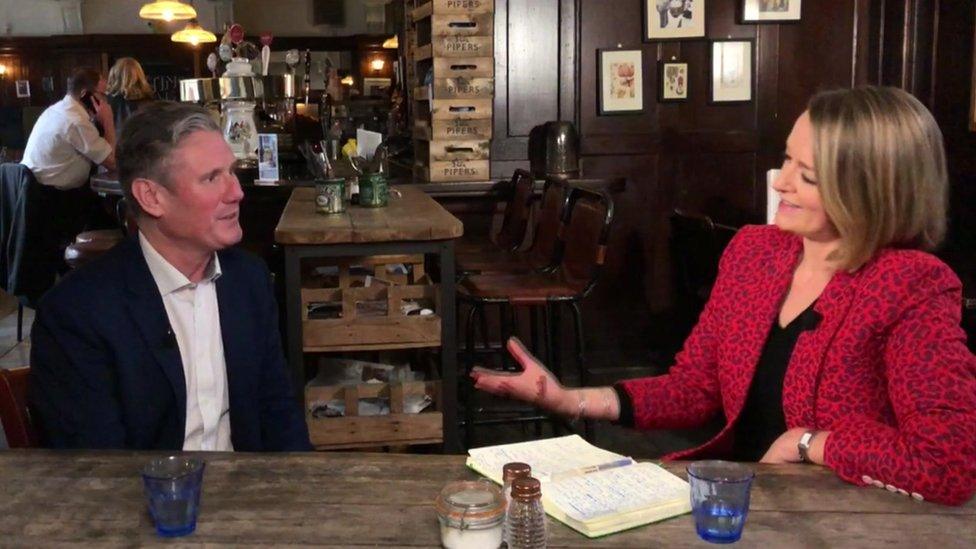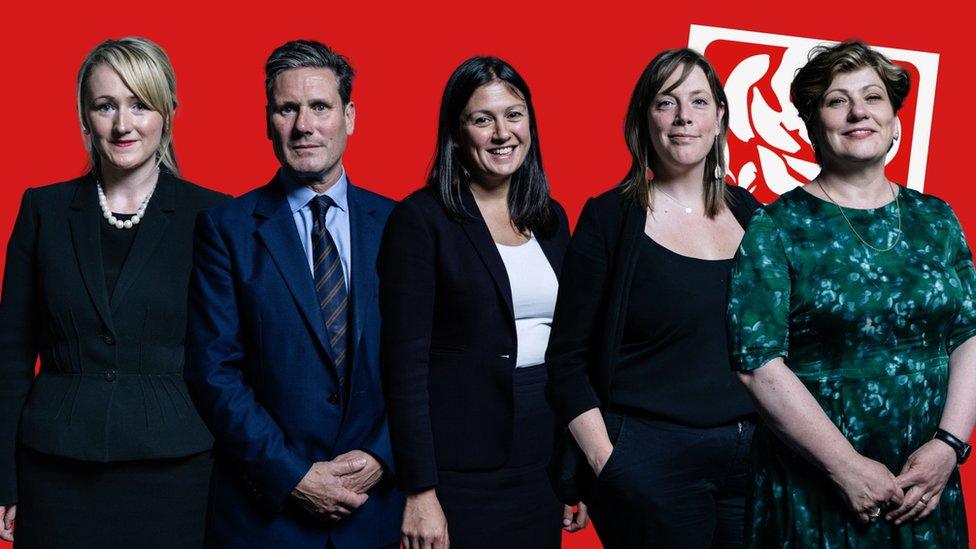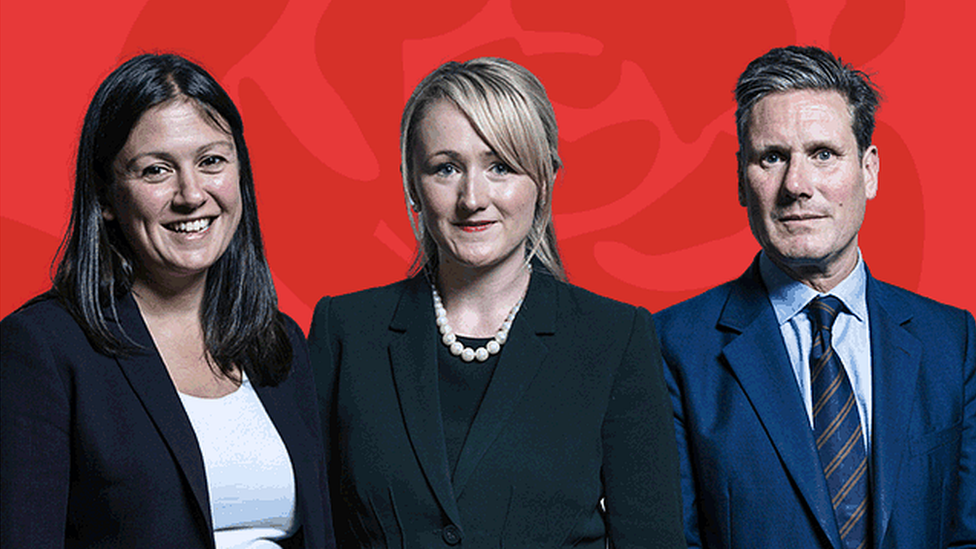Labour leadership: What does Keir Starmer stand for?
- Published
Sir Keir Starmer: We've lost four elections in a row
"I don't need someone else's name or badge."
Sir Keir Starmer wouldn't today reveal whether he saw his ideas and his ambitions for the country as closer to Jeremy Corbyn or Tony Blair.
Instead, when we sat down in a north London pub in his constituency, he wanted to make the valid argument that different leaders work in different eras, confronting different problems.
Times change, essentially, and the next leader, he believes, needs to be looking to the next set of issues and try to take the party by the scruff of the neck and make it into an effective opposition straight away - but with an eye on where the political battles will be in 2024.
But his obvious reluctance to plant a flag somewhere on Labour's wide political spectrum is perhaps representative of the problem that he faces in this race.
Few would question Sir Keir's credibility as a politician and an eminent lawyer before that.
Few would doubt that he clearly has the ambition to do the job.
Few would doubt that he is a deeply thoughtful and serious politician. But what does he actually stand for?
He made the case for what he called "moral socialism", expressing horror at inequality in society.
Walking round parts of his north London home turf, where poverty is all too obvious, it's clear he holds genuine desire and conviction to improve people's lives.
But when you press him on the "how", the details at this stage are still rather vague.
And it's not obvious whether he has a stack of policy and passion that he is keeping under wraps, because he doesn't want to alienate Labour members, who will be the voters in the election, who still believe strongly in the Corbyn vision.
Or whether he is guarded about how he would do the job and, ultimately, how he would hope to run the country, because he hopes that credibility and capability will see him into the job.
He has tried to politely distance himself a few political inches from the election manifesto by saying the party's problems started long ago - in other words it wasn't all Corbyn's fault.
He has chosen instead to call for a change in culture and an end to the factions which have dominated for the last few torrid years.

Sir Keir Starmer is the clear favourite among MPs
There is, of course, an opportunity in appearing to be the moderate choice, the safe pair of hands.
A lot of Labour members and MPs are fed up of the party being driven by division.
And that's why he is the clear favourite among MPs.
Many of them believe he would be immediately ready to do the job in a credible way.
He's probably the least risky candidate - but will that be enough?
Sir Keir has chosen not to become an outspoken critic of Jeremy Corbyn.
But nor is he the continuation some members might prefer.
And being neither one, nor the other, could mean that some of Labour's electorate may ultimately not be sure quite what he could be at all.
- Published13 January 2020

- Published18 February 2020

- Published10 January 2020

